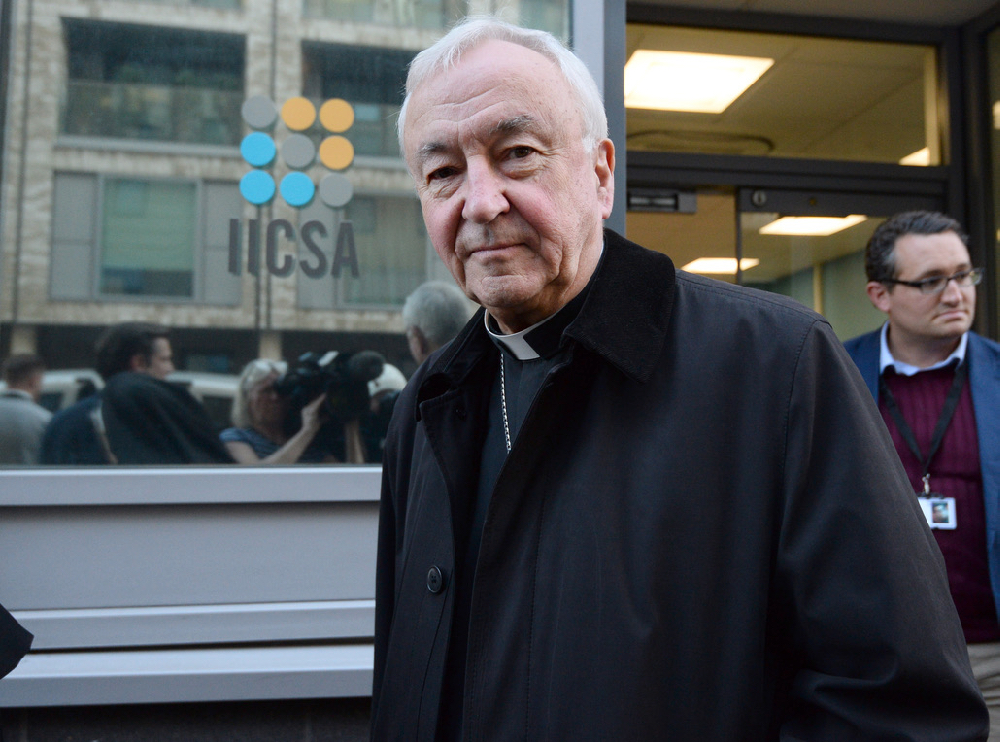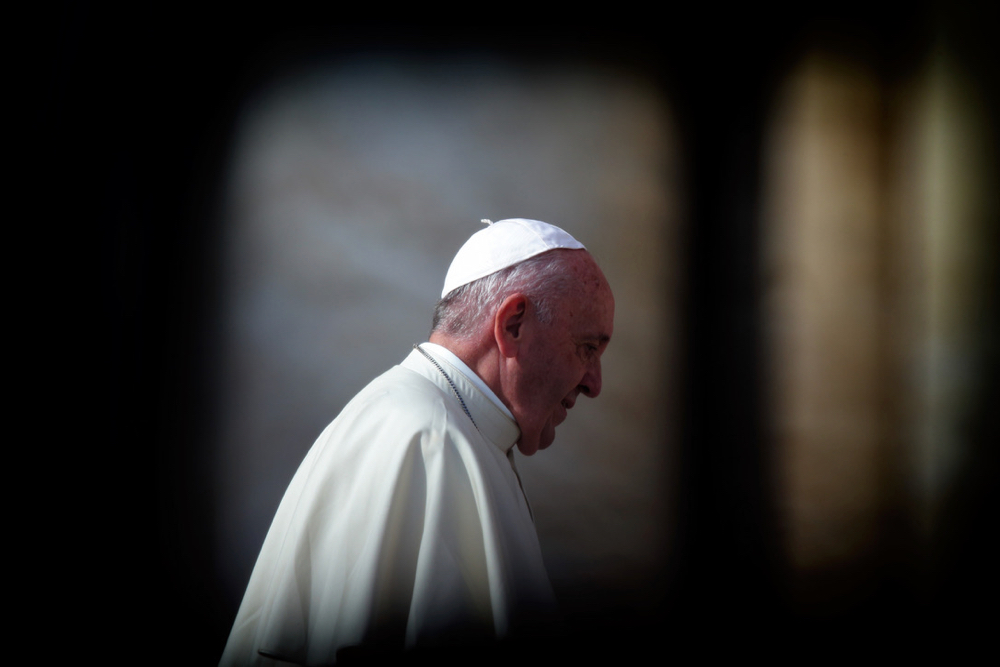The Catholic bishops in the United States have launched an astonishing attack on the top UK Catholic commentator and Papal biographer Austen Ivereigh over his latest book about the Pope.
Ivereigh instantly refuted the bishops and said the bishops were refuting an account of events in the US in 2018 in his new book, Wounded Shepherd, about the papacy of Pope Francis and his "struggle" to convert the Catholic Church, that he never actually gave.
The Tablet reported yesterday how Ivereigh reveals that Church officials in the United States drew up plans to judge bishops on abuse which they hoped Pope Francis and the Vatican would accept as a "fait accompli". Mgr Brian Bransfield, the General Secretary of the US Bishops’ Conference, and Mgr Ronny Jenkins, the Dean of Canon Law at the Catholic University of America, drew up proposals for a code of conduct for bishops and lay-led commissions to judge them.
The proposal, known as the "Bronny" proposal, was designed as reforms to rebuild the Church's battered credibility. However, when studied in Rome, it was decided they breached Catholic laws and traditions that bishops can be judged only by the Pope. Ivereigh argues that the more troubling feature of the Bransfield-Jennings plan was the attempt to carry out an ecclesiastical power play against the Pope, in what was in effect a quick-fix solution attempting to shore up the US bishops’ reputations.
In a statement on the US bishops' conference website, James Rogers, spokesman for the US Conference of Catholic Bishops, strongly resists Ivereigh's account. Sources close to the bishops indicated today that some bishops are already distancing themselves from the statement, which insiders say is more accurately the initiative of the executive secretariat of the conference, and not the entire conference.
Nevertheless, the statement is ostensibly in the name of the bishops' conference and repeatedly references the conference. Rogers says Ivereigh’s book perpetuates an "unfortunate" idea that there was resistance to the Pope among the leadership and staff of the US Bishops Conference. He accuses Ivereigh of disparaging the general secretary and a consultant to the committee on canonical affairs "particularly by suggesting they drew up documents in October that were then deliberately excluded from Rome".
Rogers explains that in August, Cardinal Daniel DiNardo began convening bishops for consultations on measures to strengthen the already effective protection program enacted through the Dallas Charter. By early September, those consultations had crystallised in the form of drafts emerging under the direction of the executive committee and with the collaboration of several committees and supported by the secretariat of doctrine and the office of general counsel.
He insists it was intended that the proposals stop short of where the authority of the Holy See began, with the lay commission based on the voluntary participation of bishops, compiling substantial reports of abuse to be delivered directly to the Apostolic Nuncio in the United States with due regard to "civilly mandated reporting laws".
He adds: "Cardinal DiNardo’s decision to delay the vote on these proposals in November of 2018 is a clear sign of his and his brother bishops’ collaboration with and obedience to the Holy Father. When Pope Francis announced the new universal Church law establishing a worldwide program of protection, Cardinal DiNardo strongly supported the measures and moved quickly to ensure the Conference’s proposals would be both ready for votes in June of this year and would be complementary to the Holy Father’s own program. The June agenda moved forward without the objection of the Holy See. Because of the decisive actions of Pope Francis and the United States Conference of Catholic Bishops, the Church is a safer place for children and adults in vulnerable situations.”
In response to the statement, Ivereigh told The Tablet: "It’s a defensive statement that doesn’t in any way dispute the facts on which my account relies, while seeking to give an alternative interpretation of that account. They begin by claiming that I 'perpetuate a myth that the Holy Father finds resistance among the leadership and staff of the US Bishops Conference'. But I nowhere talk about their resisting the pope, only that the USCCB executive planned for public relations purposes to bounce the Vatican into accepting measures on which the Vatican had not been consulted despite those measures being incompatible with universal church law."
Earlier he tweeted: "A carefully constructed if defensive statement that doesn’t dispute the facts of the account I give in #woundedshepherd, but focusses on rejecting an interpretation of those facts (USCCB secretariat at odds with pope) that I never actually give."
Next week, from 11 to 14 November, the U.S. Conference of Catholic Bishops holds its annual plenary in Baltimore. The top of their agenda is the election of new officers. Current conference Vice President Archbishop Jose Gomez of Los Angeles is expected to ascend to the top spot. He will be the first Mexican-American to lead the conference. The race for the vice presidency is wide open with Oklahoma City Archbishop Paul Coakley, Milwaukee Archbishop Jerome Listecki and Detroit Archbishop Allen Vigneron considered the most likely to win.
The bishops also plan to vote on supplementary materials for the quadrennial voting guide, Faithful Citizenship. Last year the bishops voted to retain the underlying document, published in 2007 even though it contains none of the social teaching of Popes Benedict XVI or Francis. They decided to produce a new introduction and some videos, the content of which must be approved by the bishops.
The bishops also will hear a report on the Encuentro V meeting of Hispanic leaders, and their priorities and plans for the next cycle 20



 Loading ...
Loading ...